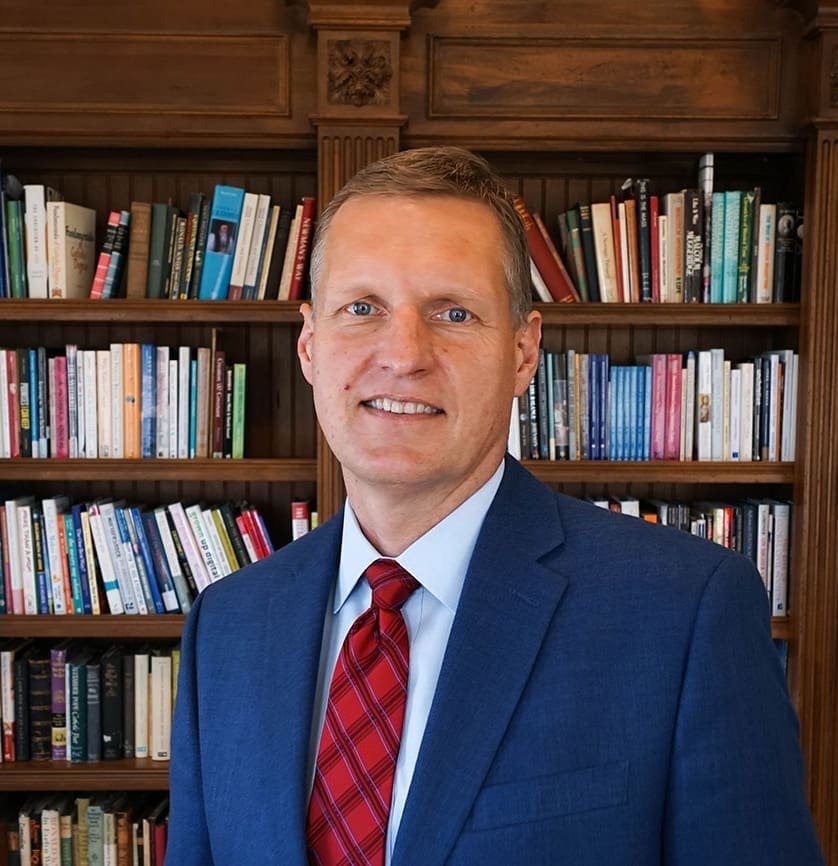When the Cold War was in full swing and in the year following “the summer of love” protests against the Vietnam War, work began on the ARPAnet, grandfather to the Internet. Designed as a computer version of the nuclear bomb shelter, ARPAnet protected the flow of information between military installations by creating a network of geographically separated computers that could exchange information via a newly developed protocol (Network Control Protocol). The first data was exchanged over this new network between computers at UCLA and Stanford Research Institute. On their first attempt to log into Stanford’s computer by typing “log win,” UCLA researchers crashed their computer when they typed the letter ‘g.’
The history of this network, and of the evolution of the Internet, has taken on a mythical quality for whole generations who take the concepts of networks and interconnectivity as technological and social “givens.” Networks quickly became the organizing, technical, and social principles for the post-Cold War era, for an ever-expediting exchange of information and ideas.
It is popularly understood that the technological revolution transformed not merely the technical foundations of modern society, but also prefigured the matrices of social relationships. Such has been the great globalizing power of the network that Manuel Castells, a sociologist at Berkley, has theorized the rise of the “network society.” The idea of the network has penetrated social and intellectual thought in such a profound way, that it would be difficult to find a discipline, profession or activity unaffected by the organizing logic of the network. Hate them or love them, networks are here to stay.
Where do networks come from and why do they matter?
Relying on the work of Randall Collins, the sociologist James Davison Hunter suggests that the technological revolution is assisting a method of social and political organization as old as the human race itself. In his The Sociology of Philosophies: A Global Theory of Intellectual Change, Collins argues that cultural, political, and social organization and change have long been driven by networks. Ideas Have Consequences was the title of Richard Weaver’s 1948 book, but how and where those ideas have consequence is as much a matter of who uses them, as what they say.
Michael Lindsay argues this in his new book, Faith in the Halls of Power. Of evangelicalism in the United States Lindsay writes:
the rise of evangelicalism is the result of the efforts of a select group of leaders seeking to implement their vision of moral leadership. They have founded organizations, formed social networks, exercised what I call “convening power,” and drawn upon formal and informal positions of authority to advance the movement (p. 11).
It is not merely the existence of elites, or even of ideas, that pushes a movement forward, but overlapping abilities. Hunter himself notes that the “impetus, energy and direction for changing the world [are] found where cultural, economic and often political resources overlap; where networks of elites, who generated these various resources, come together for a common purpose” (Hunter, To Change the World, 10).
Networks do not themselves provide the substance of culture and politics, but they are the keys, the passwords, to accessing this substance, leveraging it, and producing a new and dynamic interchange between people and ideas. There is no shortage in the vast world of ideas about how or in what ways global life should be re-imagined. Which of those ideas gets press, which ones arrive at our doorsteps and challenge us to reconsider our own presumptions and ideas is a product of the networks and institutions which sustain them. It is this insight which prompted Ron Sider to post a “help wanted ad” in the Winter 2007 Christian Scholars Review: “Needed: a few more scholars/popularizers/ activists.” The storehouse of ideas which Christian thinkers have amassed is impressive, Sider argues, but the networks of elite populists activating that latent capacity is small, indeed. Ideas might have legs, but how far and how long they can run depends on the whole body for its resources and abilities.
Competing theories of cultural change
Networks are, therefore, especially important for people who are in the business of “culture.” Among the last couple generations of evangelicals, cultural transformation was considered to be individual—what resides within the hearts and minds of people. According to this approach, changing culture means changing, first, what people believe and think—from the ground, up.
The problem, writes Hunter, is that this perspective is almost completely wrong. Although not one to marginalize the importance of values, Hunter argues that the hearts and minds of individuals do not seem to be decisively important if the goal is cultural change (Hunter, 4). At issue, he argues, is that not all ideas have consequences, and among those that do, some have much greater consequences than others. The reasons for this are many, but, mainly, that good ideas don’t succeed just on their own merit. What is good and true does not inevitably triumph in the short-term, either in political or cultural life. Even Billy Graham, the 20th-c., American icon of evangelism, saw his first few urban crusades fizzle until he was catapulted to celebrity status after William Randolph Hearst telegrammed his editors to “Puff Graham” (Lindsay, 268; see n. 33).
If cultural change is our goal, then we must begin to effectively access and leverage overlapping networks of leaders and resources, all operating in central or apex institutions—in common purpose. Evangelistic campaigns for hearts and minds conversion are not the essence of cultural production and change. The substance of ideas is far from irrelevant, but good ideas and true beliefs alone are not enough to sustain a revolution of cultural and political change.
Network protocol
While everybody has a network, and the skills to cultivate it further, troubleshooting “network protocol” in an information society is not for the fainthearted. It is the gifted person who can galvanize support and resources like Billy Graham or Chuck Colson. However, the skills can be learned and can serve you well in every industry—from academic life, to corporate management. These are a few basics worth keeping in mind.
1. Worldview: get there with something to say. Primarily we need to examine our motivations for networking. There are right and wrong motivations: the advancement of personal prestige, agenda, and desires. Networks are not nebulous and faceless connections. They are between real people, and have at their heart real substance. Even if the substance of your relationship is something simple like sports or literature, the matrix of friendship applies to networks as well—they must be about something, about looking in some common direction, pursuing some common goal. Crass talk about “return on investment” in relationships is exactly the wrong place to start.
Believe something. Start somewhere. Mark Noll writes that “the scandal of the evangelical mind is that there is no evangelical mind.” Rising public intellectuals and elites can be cynical about the insular and limited impact of the academy. But wise Christians will keep this kind of ivory tower cynicism at arm’s length. Instead, if we interpret the institutionalization and intellectual cultivation of an evangelical tradition as part of a continuum of a long-term cultural project, we begin to recognize that first (and continually) we must have incisive and attentive thinkers and scholars clearing the ground for a new generation of public intellectuals to arise. Cultural change, in short, is about “a slow reformation in a fast and easy society.” What we believe—how we believe it—and why we cultivate these relationships is at the very heart of the emergent geography of networks and cultural change.
2. Take a generalist, interdisciplinary approach. What separates the academic from the public intellectual, and the brain trust from the activist and elite is often not a more advanced intelligence—it’s a passion and ability to draw sweeping generalities, connect wide disparate lines of thought, and even jump in and out of disciplines in which one may have little formal training. Having a wide variety of interests, and developing a genuine curiosity about other disciplines, ideas, and theories is the surest way to transcend the narrowly constructed disciplinary boundaries of the academy. Some of the strongest cultural activists have been generalists who borrowed ideas from other thinkers, previously unknown within a discipline, and installed them into their own discourse.
Plato said that if the wise disdain the task of politics, then they must suffer being governed by fools. Ron Sider argues similarly that “somebody will write popularizing books for the ‘average person.’ If those with scholarly training will not do it, they should not complain when those with little expertise do it badly, embarrass the church, and mislead laypeople with one-sided, simplistic nonsense” (Sider, 166).
The first step to developing overlapping networks of cultural elites is for those elites to step outside the imposed and socially constructed boundaries which sequester their thinking. Then, when we meet, we might have something to say and a way to talk to each other about it.
3. Be authentic. More important than being able to choose the right fork for a dinner salad is a deeper sense of authenticity. There is integrity between what we believe, and how we live—a gap of authenticity that each person wrestles deeply with. What we say and how we live don’t line up. We can try and hide from it, avoid and contest the integrity of our world and life view, or we can be honest and authentic about our failings, our mixed desires and our flaws. Authenticity with self and with God begins before authenticity with others. When we have accepted, or at least acknowledged ourselves, we can begin to move beyond our own insecurities, our own needs for validation and acceptance, and begin to see, if only a glimmer, the beauty and brokenness in the hearts and minds of others.
Mary Jo Leddy writes that this kind of authenticity moves us beyond our sense of powerlessness in changing the world and ourselves. She writes that “understanding that we are from God and with God is also to become aware of how we are meant to be for God. This seems ever more important in a culture that is losing, or has lost, a common social sense of what it is for” (Radical Gratitude, 8).
Know yourself, and know the integrity of your own lived worldview. There is a deep attractive quality about people who don’t hide behind their own insecurities, but betray a kind of comfortableness in their own skin and convictions that the rest of us envy. Always at the centre of this kind of radical authenticity is one thing—God—the sure knowledge that “there but for the grace of God you go.”
4. Practice hospitality. It is argued that some people have the gift of “hospitality,” that they know how to turn a space, or a home into a welcoming and intimate place. But personalities and demeanours can be this kind of space, too, an interior presence that accepts instead of attacks, and turns people comfortable and relaxed instead of on edge. By contrast Jean Vanier calls people who are constantly on edge porcupine people—the quills are always out, and they are constantly ready for a fight.
Hospitality begins with authenticity, and invites the other to relax the tension and the bravado that is at the centre of so many relationships. It can be as simple as minding your manners, and respecting the structures and conditions that your neighbour has imposed. It can mean knowing when, how, and if to challenge ideas and norms of dress and etiquette. Hospitality fundamentally means being willing to accept another person’s rules, instead of challenging them with your own, because connecting and relating to them is more important than your own social habits. It is a first sign of respect, and often the most important.
5. Speak truth. Over promising and over selling is the hallmark of networked relationships everywhere. Making the relationship can seem like the most essential goal, but information travels fast and stretching details and deliverables is the surest way to damage relationships. It’s pretty rare for people thinking about authenticity and hospitality to air brush the truth, but as you encounter high level people natural human insecurity can tip your hand toward the vaguer continuum of exaggeration and omission. Don’t do it. Stay true to who and what you are. Not only is truth the essence of good relations, but it’s also the centre, as anyone effective in business will tell you, of a long-term social and business strategy.
6. Build friendships.All of these protocols should inspire us to understand that relationships are more than me a n s t o a n end, even if that end is highly worthwhile. People are more than pieces to be moved into position on a chessboard. A good measure of your projects and goals is the means you use to achieve them. Goals that require you to marginalize the people you rely on most to get there aren’t worth pursuing—or at least not in that way. Thinking Christian networkers are not ends-means sort of people. The journey itself is worthy of reflection. No project or goal can relativize the fundamental call of God to love and respect our neighbour. Networking can be hard work, but it should also be playful, full of raucous laughter and deep and lasting friendships. Friendships don’t measure time spent with people by deliverable outcomes, they organically flow out of interests, desires, and investments of time and passion. This is still the surest and strongest way to build relationships and networks.
7. Harness the power of the institution. There are networked giants out there we know about—and it seems they do it all on their own, with just their sheer force of will. It’s not true. Connecting and relating to large numbers of people means a scale of organization that a simple individual can’t accomplish. This is our last protocol: house your relationships in something greater than yourself, not merely ideas but institutions. Institutions lend the organization and frameworks needed to coordinate your network. Keep a detailed database, even if it means starting with something simple like Outlook or Google contacts. Don’t forget who people are, and don’t lose their information. Institutions will keep their own kind of database, with far more sophisticated people and software—a great example of why housing in an institution makes for stronger network capacity. Making relationships is not a one-person show, even if you’re the one that people know. Behind you is a host of ideas, people, management and organization that we can too often forget.
Thinking long-term
According to John Seel, a founder of both the Trinity Forum and the Institute for Advanced Studies in Culture, the challenge of long-term cultural change is two-fold. It is not merely getting people into the right places, or connecting to those people, but it is also the kind of people—who they are, and what they believe—that inhabit those positions. Before we begin a mad rush of glad-handing there is intense personal reflection to be done—the journey in, as always, must fund the journey out. These principles of networking are designed to mark significant way points on that journey, and to remind us that the foundations of networking are grounded deeply in the Person and the work of God. A successful network is not just a large one, it is a meaningful one.
Sociologist Alan Wolfe looks at elites and asks if some of them represent a kind of toothless evangelicalism: the triumph of market forces and North American individualism over doctrine and values. John Seel writes that American evangelicalism has met the culture, and the culture has won.
Thoughtful Christians, however, will recover the power of networks and their protocols in order to effect cultural change.
Networking is not a new skill, nor a particularly impossible one to master. Pressing on and persisting is just par for the course in a long-term movement for cultural change. Make sure you have something to say and, most importantly, know Whose you are.


